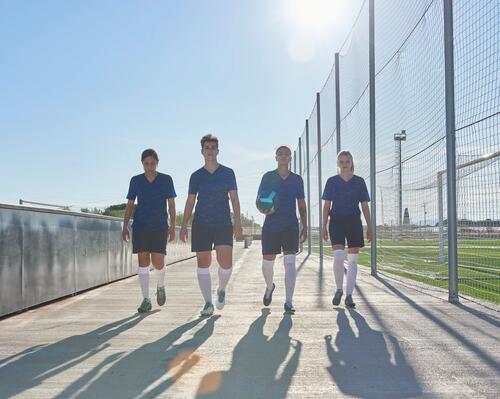You'll find that you can adapt, for lots of different reasons:
You'll be able to help your team out in a match if a team-mate gets injured or sent off, or over the course of a season.
You'll show what you can do in another position and your coach will want you to play there again.
You're the first person who wants to play in other positions.
Over the years, you'll show that you've got more strings to your bow: when you're young, you'll want to play in your favourite position, which in 95 per cent of cases is the position your footballing idol plays in. In any group of 20 young girls, half of them will want to be playmakers and the other half forwards.
You've had time to take stock of the seasons you've played. When, after a few years, you start to really understand the game, you realise that you can have a lot of fun playing in goal, in defence or at full back, which are all positions that don't appeal that much on paper. You realise that you've got what it takes to be the driving force of your team and to take pleasure from playing in those positions.
You have the skills to play in certain positions, for sure, but there are other players in the team who are perhaps a better fit for them, so your coach is going to play you somewhere else. That's also what makes football so much fun.




